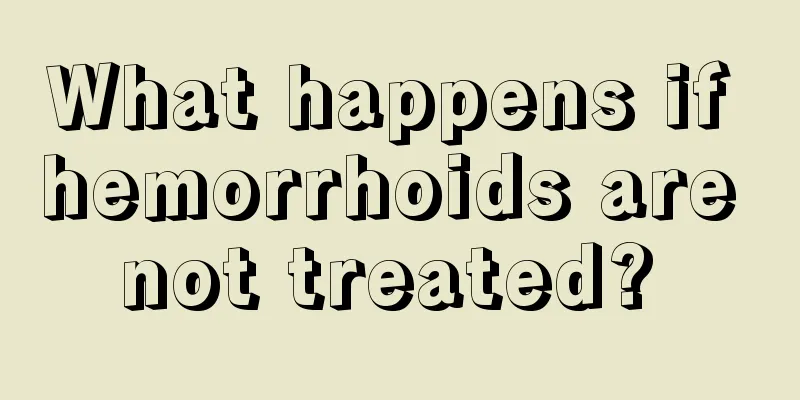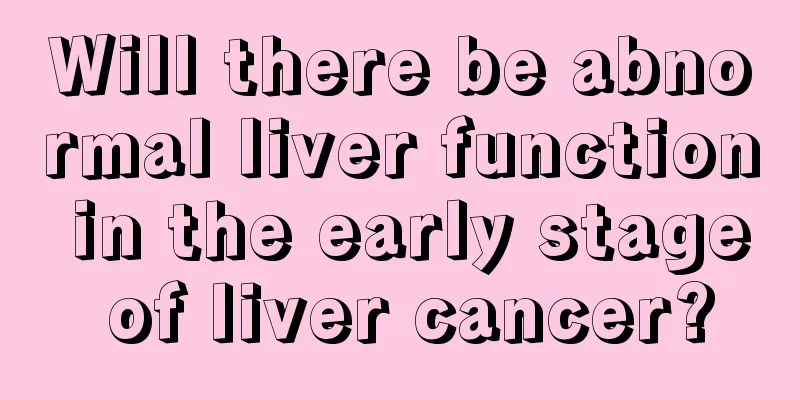What happens if hemorrhoids are not treated?

|
Many people have had hemorrhoids, which are very harmful after they occur. If they are not prevented in time, they may cause some complications. Therefore, many people are worried that hemorrhoids cannot be cured, so they simply start not to treat hemorrhoids. Failure to treat them may cause anorectal diseases and may even cause prolapse and eczema around the anus, so they must be treated when necessary. 1. Cause anorectal diseases: Hemorrhoids are like a fuse that can trigger a variety of anorectal diseases, such as anal fissure, anal fistula, etc. If hemorrhoids trigger other anorectal diseases and several symptoms coexist, it will be very difficult to treat and the recovery time will be prolonged, which will have the greatest impact on work and study. Although it will not cause much harm to the human body, it is the result that all anorectal patients fear the most. 2. Cause prolapse, stagnation and even necrosis: Internal hemorrhoids are usually divided into stages I, II, and III. In terms of symptoms: Stage I is just painless bloody stool, which will not have much impact. Stage II: The mucosal prolapse can be reduced, but the final result of rectal prolapse cannot be avoided. When it reaches stage III, pain often occurs, and in severe cases, even necrosis occurs. Generally, stage I internal hemorrhoids take a long time to develop and the symptoms are relatively mild. However, when they develop to stage II, the pain will be greatly aggravated. The time from stage II to stage III is very short, and the symptoms are obvious when they reach stage III. If this leads to necrosis, the consequences will be very serious. 3. Causes long-term perianal eczema: Due to the prolapse of hemorrhoids and relaxation of the sphincter, mucus flows out of the anus and irritates the skin, causing skin itching and anal eczema. In severe cases, it may even spread to the buttocks, perineum and clitoris, and local rashes, erythema, erosion, exudation, scabs and desquamation may occur. 4. Long-term blood in stool can easily lead to anemia: Blood in the stool is the main symptom of hemorrhoids. Stage I internal hemorrhoids are in the early stages and bleed more frequently. Stage II internal hemorrhoids belong to the middle stage, and the bleeding may be more or less. Clinically, the majority of patients have internal hemorrhoids at stages I and II. Because the symptoms of stage I and II internal hemorrhoids are relatively mild, they are easily ignored by patients or treated conservatively. Over time, as the amount of blood loss increases, patients develop severe anemia symptoms such as pale complexion, fatigue, dizziness, and weakness. There is also a type of anemia caused by erosion of hemorrhoidal mucosa. Since most internal hemorrhoids are accompanied by erosion of the hemorrhoidal mucosa, when there are small arteries in the most severely eroded areas, spurt-like bleeding will occur during defecation, and the amount is large, which can easily cause anemia. If the mucosal erosion is severe and the patient has dry stools for a long time, the eroded mucosa may be repeatedly abraded, causing chronic bleeding, which can also cause anemia over time. |
<<: Can hemorrhoids burst on their own?
>>: Can hemorrhoids heal naturally?
Recommend
How to squeeze pimples without leaving scars
I believe that when many people see a pimple on t...
In autumn, your eyes will become dry if you use eye drops. Be careful. The more you use, the drier your eyes will become.
After the fall, in addition to the skin becoming ...
What harm does repeated stone crushing do to the body
Stones are a problem that troubles many people. C...
Will eating too many fresh walnuts cause internal heat?
Many friends think that eating too many fresh wal...
Can red rope ward off evil spirits?
In life, we often see people wearing red ropes. T...
Cancer patients can't eat ribs? Doctors tell you: If you don't want your condition to get worse, it's better to eat less of these foods
Aunt Zhang, who is nearly 60 years old, has been ...
What to do if your feet are swollen in the late stage of lung cancer? Do these three things
In the late stage, the symptoms of lung cancer wi...
What are the contraindications for taking long-acting penicillin
Long-acting penicillin is a common drug in life, ...
My hands and feet get cold when I get nervous
Feeling cold hands and feet in winter seems to be...
What's wrong with the numbness on the right side of my body?
Sudden numbness occurs on the right side of the b...
How much does it usually cost to treat fibroids
How much does it cost to treat fibroids? Now ther...
What are the main symptoms of cervical cancer
What are the main symptoms of cervical cancer? I ...
What should lung cancer patients pay attention to in their diet
Lung cancer mostly occurs because patients do not...
What is the main cause of prostate cancer?
Prostate cancer is a common disease in life. Most...
Periarthritis shoulder guard
Frozen shoulder is a relatively common shoulder d...









